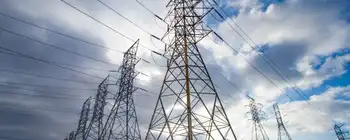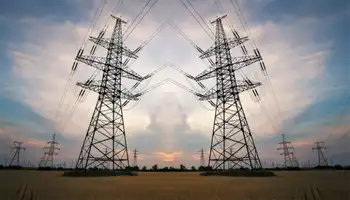FirstEnergy to deactivate two coal-fired power plants
AKRON, Ohio -- - FirstEnergy Corp. recently announced that it expects to deactivate two coal-fired power plants located in Pennsylvania by October 9, 2013. The decision is based on the cost of compliance with current and future environmental regulations in conjunction with the continued low market price for electricity.
The plants scheduled to be deactivated are Hatfield's Ferry Power Station in Masontown, Pa., and Mitchell Power Station in Courtney, Pennsylvania. The total capacity of these plants is 2,080 megawatts, representing approximately 10 percent of the company's total generating capacity, but about 30 percent of the estimated $925 million cost to comply with the Environmental Protection Agency's Mercury and Air Toxics Standards MATS.
In total, about 380 plant employees and generation related positions are expected to be affected. Eligible employees will receive severance benefits through the FirstEnergy plan or as provided by their collective bargaining agreement.
Following the deactivation of the Hatfield's Ferry and Mitchell power stations, FirstEnergy will continue to operate one of the nation's largest, cleanest and most diversified electric generating fleets. The company's fleet after the deactivations will be comprised of 56 percent coal, 22 percent nuclear, 13 percent renewables and 9 percent gas/oil, and will have a generating capacity of more than 18,000 megawatts.
With the deactivation of these two plants, in addition to the nine plants the company announced for deactivation last year, nearly 100 percent of the power generated by FirstEnergy will come from resources that are either non- or low-emitting, including nuclear, hydro, pumped-storage hydro, natural gas and scrubbed coal units. The company expects to invest approximately $650 million in MATS-related control technology to enhance or modify existing air quality equipment or install new equipment on its remaining facilities. Following these upgrades, FirstEnergy expects to reduce emissions of nitrogen oxides by 84 percent, sulfur dioxide by 95 percent and mercury by 91 percent below 1990 levels. In addition, the company expects to reduce carbon dioxide emissions 20 to 30 percent below 1990 levels by 2020.
The plant deactivations are subject to review for reliability impacts, if any, by PJM Interconnection, the regional transmission operator that controls the area where they are located.
FirstEnergy is a diversified energy company dedicated to safety, reliability and operational excellence. Its 10 electric distribution companies form one of the nation's largest investor-owned electric systems, serving customers in Ohio, Pennsylvania, New Jersey, West Virginia, Maryland and New York. Its diverse generating fleet features non-emitting nuclear, scrubbed baseload coal, natural gas, hydro and pumped-storage hydro and other renewables, and currently has a total generating capacity of more than 20,000 megawatts.
Related News

Which of the cleaner states imports dirty electricity?
WASHINGTON - In the United States, electricity generation accounts for nearly 30% of our carbon emissions. Some states have responded to that by setting aggressive renewable energy standards; others are hoping to see coal propped up even as its economics get worse. Complicating matters further is the fact that many regional grids are integrated, meaning power generated in one location may be exported and used in a different state entirely.
Tracking these electricity exports is critical for understanding how to lower our national carbon emissions. In addition, power from a dirty source like coal has health and environment impacts where it's…




